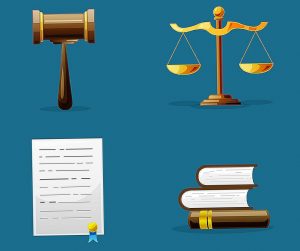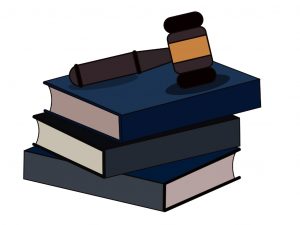Requirements to study law in south africa: Exists a location where one can locate a wife? The answer to this issue depends on the individual, therefore a guy should consider what he wants and expects from his future wife’s personality before deciding on the bride’s nation. Only by doing this will this choice be thoroughly considered, and there are two to three times as many possibilities of finding a wonderful partner.Many students have aspirations of attending a South African university to study law, but many are unaware of the prerequisites for doing so.

There are 17 approved law schools at public and private institutions in South Africa. Most of these institutions of higher learning are among the greatest in Africa and the whole globe. Law schools in South Africa offer top-notch instruction that meets international standards. Several of these prestigious law schools are housed at establishments like the University of Cape Town and Stellenbosch University and are supported by a strong foundation of accomplishments and traditions. They thus look for the best individuals among those who apply to study law in their centre of learning.
Recommended: Highest paying companies in the world
It may be a fantastic yet intimidating experience to study law in South Africa, therefore you need to be ready for it. You become ready to encounter a legal dispute in real life when you are ready to study law. It’s vital to keep in mind that you must always be prepared. As an applicant who wants to study law at a university in South Africa; numerous tests and professional assessments must be prepared for; to take on the law, comprehend it, and properly interpret it, you must be morally fit; in a few years, you must be prepared and accessible to argue your position or provide a convincing argument.
But before doing any of that, you must first meet the prerequisites for South African law school admission. And how do you go about identifying these requirements?
Criteria for Studying Law in South Africa
The criteria for admission to study law in South Africa vary widely throughout the nation’s institutions. An NQF level 4 certificate (which might be a National Senior Certificate or a Senior Certificate) or an equivalent is the first prerequisite for studying law in South Africa. You are now eligible to apply. It is assumed that the candidate for this certificate has earned grades above the national average in the necessary disciplines.

Also see: Worst countries to start a business in the world
The majority of candidates should have studied history and other artistically orientated courses throughout their secondary certificate exams. There is this conditioned emphasis on the subject of History. Many think it helps with application screening since some law curriculum place a strong emphasis on history.
Requirements to Study Law in South Africa from South Africa for Local & International Students
However, in general, South African universities demand:
1. A minimum percent score of 70% in either English as a First Language or as a Second Language, and a minimum percent score of 50% in mathematics (math as a pure subject or mathematical literacy). A 65% average in all other disciplines is sometimes required for law programmes at South African institutions.

2. Students with NSC who want to enrol in law school must have at least four topics with a level 4 (50–70%) pass mark.
The Admission Point Score (APS) method is used by law schools to evaluate candidates. The APS score system asks matriculants to submit their top marks in English, Mathematics, and Life Orientation from their matric results. The APS requirement to enter law school is 21 points. Some colleges’ law schools need a minimum of 33 points before the applicant can be taken into consideration for admission.
Recommended: Hardest jobs to do in the world
Subjects Needed in High School for Law Studies in South Africa
The disciplines that must be studied in order to study law in South Africa include both broad applicability and more specialised subjects. The following are subjects that one must study in order to become a lawyer in South Africa:

English as a first language, either at home or elsewhere
Mathematical literacy
History
Business Studies,
Accounting,
Economics
A third language
Drama
Natural Science
Biology
Recommended: Countries With The Highest Rate Of Cybercrime
It should be emphasised that these prerequisites are the bare minimum for entry to undergraduate courses in order to study law in South Africa. The basic prerequisites for admission to each university’s law degree programme vary, therefore prospective students should check with the appropriate faculties.

Requirements for Higher Education
A candidate who has successfully finished a bachelor’s programme in another subject may choose to pursue a degree in law as well. There aren’t many restrictions for graduates who desire to pursue a second law degree in South Africa. As a result, anybody can apply to study law in South Africa, even if they have already earned a bachelor’s degree in another subject. Your application will probably be processed more quickly if you have a degree certification for a programme that you have previously finished. Having a higher degree prior to applying is not necessary, though.
Language Requirements
Like the majority of African nations, South Africa has a diverse population and many different languages. English is now the official language of communication in South Africa for trade, education, and government institutions in an effort to close the language gap. Any overseas student must thus possess excellent English language skills as one of the conditions for enrolling in a legal programme in South Africa.

Some colleges demand that international applicants take an English language test, including the International English Language Testing System (IELTS) or a comparable exam, if they are from non-native English speaking nations.
Recommended: How to become a successful lawyer
Budgetary requirements
The ability to pay tuition fees, cover housing and food expenses, and to have at least $1,000 in the bank are all prerequisites for enrolling in a legal programme in South Africa. This is to guarantee that each student has a relaxing stay during their time of academic study and research.

Moral Requirements
A student must also be a law-abiding citizen of his or her nation and have no prior convictions anywhere in the globe in order to study law in South Africa. The learner must follow the law in order to uphold and interpret it.
Requirements for Citizens/Legal Residents
The applicant must be a citizen or authorised resident of the South African state in order to study law there. Candidates that don’t meet this requirement could not make it through the screening process.
Recommended: Day vs Boarding School: Why Day Schools Are Better Than Boarding
Age Requirements
The student must be at least the legal age of 17 to apply to study law in South Africa, which is the last condition. This is to guarantee that thoughtful adults are participating in the deliberations and research procedures involved in the study of law.
Which universities are covered by these requirements?
The majority of South Africa’s universities are covered by these prerequisites to study law there. This is because legal programmes are available at most public universities.
The Universities offering Law studies are listed below:
Stellenbosch University
University of the Witwatersrand
University of Johannesburg
University of Pretoria
Rhodes University
University of Cape Town
University of Venda
University of Zululand
University of the Western Cape
University of Fort Hare
IIE Varsity College
University of KwaZulu-Natal
Northwest University
Nelson Mandela University
University of the Free State
University of Limpopo.
Recommended: Countries with the Most handsome men in the world
Conclusion
Are you qualified to start an application now that you are aware of what is required to study law in South Africa and which universities these criteria apply to? Law school is a lucrative and difficult area to study. In South Africa, being a lawyer takes a lot of commitment and effort.

Edeh Samuel Chukwuemeka, ACMC, is a lawyer and a certified mediator/conciliator in Nigeria. He is also a developer with knowledge in various programming languages. Samuel is determined to leverage his skills in technology, SEO, and legal practice to revolutionize the legal profession worldwide by creating web and mobile applications that simplify legal research. Sam is also passionate about educating and providing valuable information to people.